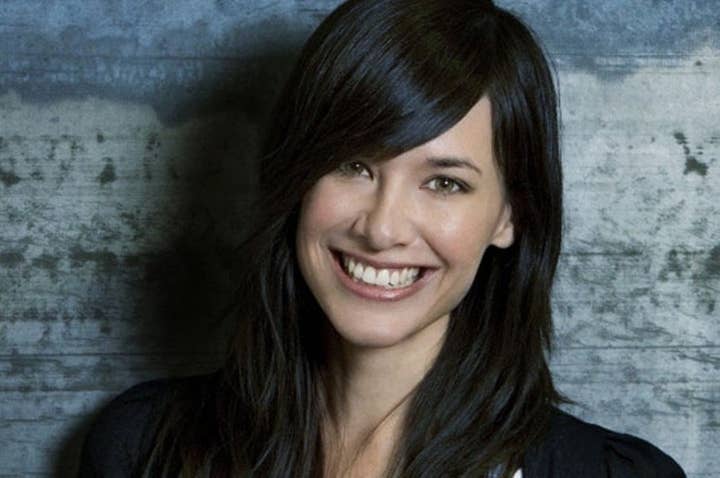Bonuses should be tied to innovation, not profit - Raymond
The former Ubisoft exec speaks out on the problems and pressures of AAA development, will announce new plans in July
As the former managing director of Ubisoft Toronto, Jade Raymond has experienced the world of AAA publishing first-hand. While she would never disparage her former employer or team, Raymond does acknowledge some of the problems that the AAA space encounters on a regular basis in a recent interview with Forbes.
Perhaps one of the more disheartening facts for many developers working at a big AAA studio is that metacritic scores and sales figures get in the way of genuine creativity. It's why we see so many sequels in big franchises rather than risky attempts at new and different IP.
"I don't think you can have an inspired game without an inspired team. Magic in a game happens when everyone cares enough to add their special touch... if people want collaboration across teams in a studio, why would bonuses only be based on the success of your game? The way award systems are set up in games is designed with a specific purpose in mind. And yet we don't seem to align things like that in the way we structure our policies or our companies," she noted.
"Innovation is important; if the bonus is based 100 percent on profitability and sales, you aren't as likely to take creative risks or innovate, because every time you try to innovate or focus on things that are new, some of them might not work out," she continued. "You try something new, and sometimes it's fun and sometimes it's not. So, you can run out of time trying to come up with a new solution. And if your bonus is 100% based on profitability you are more likely to stay with the tried and true route - if Game X is a sequel and the previous game hit that bar, you're going to do a similar thing but polish a little more.
"Suddenly every monster game is like all the other one[s], and cost a lot to make...The AAA industry definitely has to pause and question the current recipe"
"So I think that if companies really do care about quality, or risk-taking and innovation in the long term, they also have to tie their merit-based bonuses to metrics that align with that."
When developers are forced by suits to ultimately take fewer risks, it can unfortunately lead to stagnation in some genres. As Raymond told GamesIndustry.biz back in February, she'd dearly like to see a new take on the fighting game, for example. "I think there are a lot of different opportunities in action games that haven't been explored," Raymond said. "For example, the fighting game has been pretty narrowly defined and has stayed relatively stagnant for the last few years. Even though the tech keeps on getting better and the consoles keep getting better, you're still sort of stuck in this arena, and it's the same thing with slightly better graphics. To me, there are so many opportunities to push that genre in new directions and integrate that kind of gameplay into a broader experience. And that's just one example."
Putting limits on creativity in an industry that's fueled by creative people is the exact opposite of what you'd want, and Raymond believes that the AAA space could do a better job in controlling costs without having to sacrifice innovation.
"I do think we need to make some adjustments. I think there are quite a few inefficiencies currently - you could invest in tools that make people more productive, and where you can get the same results with fewer people. I don't think those monster teams necessarily need to balloon out of control to make the monster games," she commented to Forbes.
"I think the other thing is that we do have to find different revenue models and different ways to give players what they are looking for, without getting stuck in the model of having to add all the features - so one of these monster games has to have stealth and shooting and melee combat and hand-to hand combat and driving and flying. And suddenly every monster game is like all the other one[s], and cost a lot to make. I certainly don't think that's the right approach. The AAA industry definitely has to pause and question the current recipe."
Indies often produce more innovative projects because they're working with smaller budgets and aren't risking as much. And of course, there are no shareholders to appease. That being said, it's not fair to put everything on the shoulders of indies, Raymond remarked. "I think there's an opportunity there for [indies], but I think there is a greater responsiblity to take risks on the larger companies' side, because they have the means to do so," she said.
Since leaving Ubisoft last October, Raymond hasn't given many clues about what she's going to pursue next. Now, however, she's stated that she's going to announce something in the next couple of months, and she's looking forward to a chance to help out the indie community.
"I've been working with some of my friends helping to get their indie projects up and running, and they were curious to know what kind of things my friends needed help with, and what questions they were asking... I think especially with indies the main thing they need help with is business and legal - structuring things, what kind of deals are out there, funding - and basic communication between teams. Those are things I'm happy to be able to help them with. It's pretty cool to know that it applies to them, and it's nice to have the chance to help them. I'm going to be announcing my next thing in July some time, so this is an opportunity to give back a little," she said.

